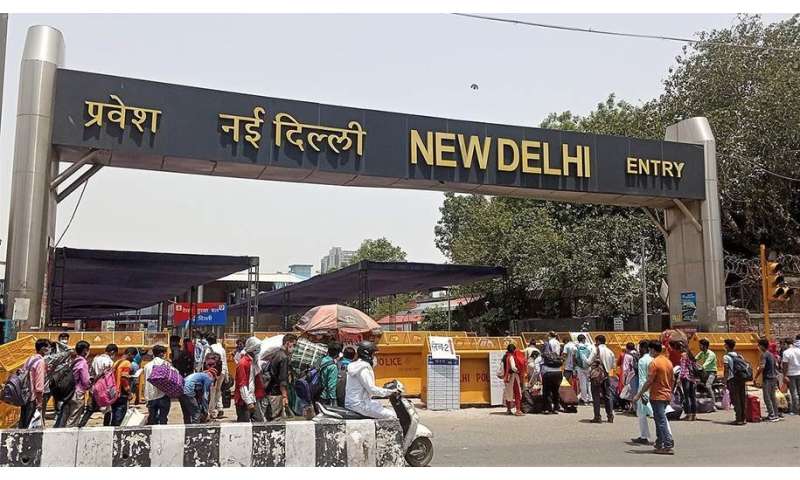
India’s lockdown may have hastened spread of COVID-19 to rural areas as millions of migrant workers, trapped in the big cities, ended up being exposed to the virus—which they carried into their distant villages when finally allowed to return.
Pavitra Mohan, co-founder of Aajeevika Bureau, a non-profit that provides healthcare to migrant workers in the desert state of Rajasthan, is clear that the lockdown, from 24 March to 4 May, contributed to the spread of the virus into India’s vast hinterland, where nearly 70% of the country’s 1.3 billion people live.
The lockdown, declared with only a four-hour notice, left some 200 million migrant workers stranded in cities. Suddenly unemployed and evicted by their landlords, they were left with little choice but to start marching home. Administrations also failed to recognize that migrant workers generally live in cramped quarters, where physical distancing is impossible, and they have little access to healthcare. Hundreds perished along the way from starvation, exhaustion or being struck by speeding vehicles on the highways and by goods trains on railway tracks.
A study done by Aajeevika Bureau on migrant workers who managed to return to Rajasthan in the early phase of the lockdown from 24 March to 15 April showed that none of them were infected. In contrast, many of those who returned to Rajasthan after 4 May, when the government allowed movement, were found carrying the virus.
The study provides a template to track the movement of the virus and also takes a closer look at the plight of millions of migrant workers who moved back from the cities to their homes in the other major labor-sending states of Uttar Pradesh, Bihar, Madhya Pradesh, Orissa and Jharkhand.
“Migrants who were held back in the cities when the COVID-19 pandemic was raging there picked up the infection, and when they were allowed to go home carried the virus to the rural areas of Rajasthan and to other labor-sending states,” Mohan said.
Aajeevika Bureau estimates that about 300,000 migrants returned to Rajasthan in the first phase, and again between 4 May and 15 June. The two distinct waves afforded a chance to make a comparative study.
“Allowing migrant workers a chance to return home using the road and railway networks, before imposing the lockdown on 24 March, would certainly have helped contain the virus within the metropolises and urban centers,” says Mohan.
According to Mohan, migrant workers are wary of returning to the cities after such shabby treatment, preferring meager earning from smallholder farming to the unhealthy, slave-like conditions offered them there.
Source: Read Full Article
